Manchester United and Arsenal must adapt or get left behind by the changing game - Danny Higginbotham
INSIDE FOOTBALL: Leicester City and Atletico Madrid have rendered possession stats useless and are leading the way in this era of counter-attacking football
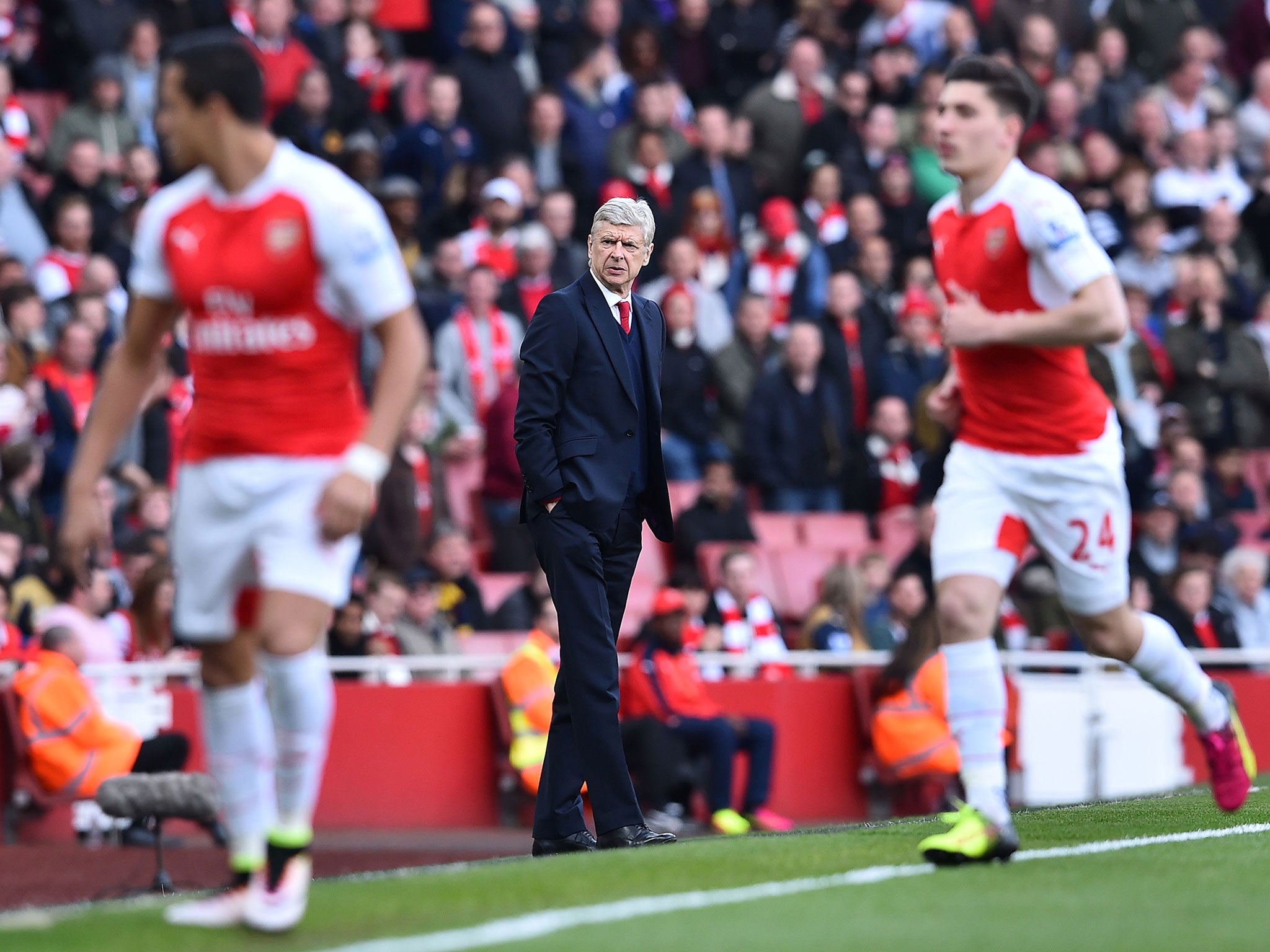
Your support helps us to tell the story
From reproductive rights to climate change to Big Tech, The Independent is on the ground when the story is developing. Whether it's investigating the financials of Elon Musk's pro-Trump PAC or producing our latest documentary, 'The A Word', which shines a light on the American women fighting for reproductive rights, we know how important it is to parse out the facts from the messaging.
At such a critical moment in US history, we need reporters on the ground. Your donation allows us to keep sending journalists to speak to both sides of the story.
The Independent is trusted by Americans across the entire political spectrum. And unlike many other quality news outlets, we choose not to lock Americans out of our reporting and analysis with paywalls. We believe quality journalism should be available to everyone, paid for by those who can afford it.
Your support makes all the difference.Football has changed this season. We used to talk about teams passing the opposition to death, as Spain, Barcelona and their imitators dominated possession and trophies. But now teams are passing themselves to death, ending up sterile in attack and vulnerable on the break.
The most impressive two sides this season, Atletico Madrid and Leicester City, have realised this. They have developed a deep-lying counter-attacking game which goes against so much of what we were told for the last few years, and is all the more effective for it.
Now, at the top level, the game is determined by counter-attacking, both scoring from them and defending against them. Which is why Louis van Gaal and Arsene Wenger, two great managers at their peaks, must now adapt or risk getting left further behind.
There was a time, not very long ago, when people used to talk about possession itself with such reverence and admiration, talking about ‘the passing carousel’, and how it had opponents ‘chasing shadows’. Teams would run after the ball for 60 minutes, tire themselves out, before being picked off at the end. That was how games used to go, but it is not any more. The idea of endless possession as ‘the right way to play’ has been shown up as a myth.
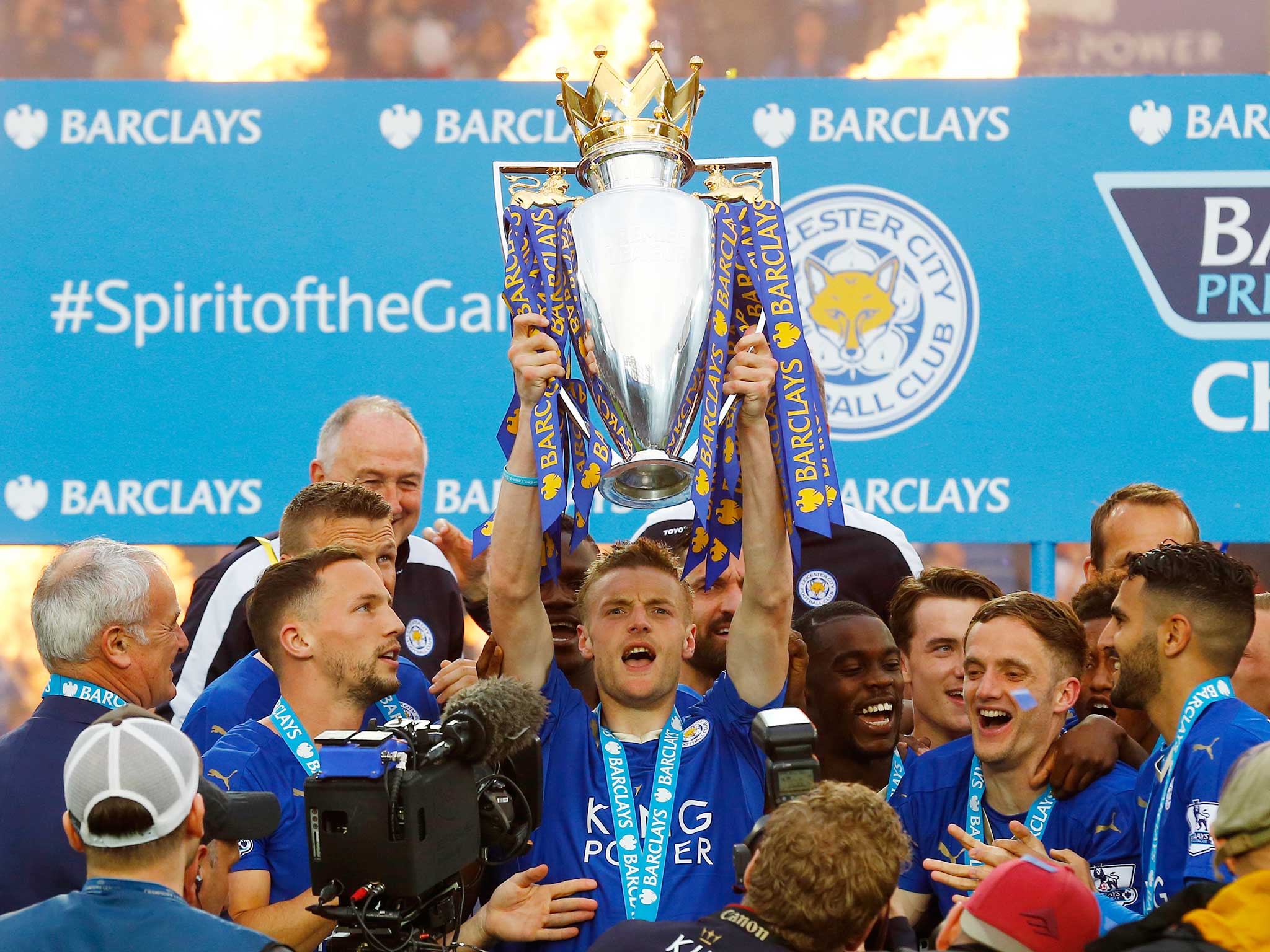
What has changed is that teams are now cleverer when they do not have the ball. There is no point in chasing possession until you are exhausted. The answer is to play compact, in your own half, leaving no space in behind, or in between your lines.
That is how Diego Simeone has Atletico Madrid lined up, and after their first press, the rest of the team all drops back into their own half. They are so well drilled in defence that they are almost impossible to play through, which is why they have conceded just 18 goals in 37 La Liga games this season. They are not going to win the title this year – although they did in 2014 – but could go one better by winning the Champions League.
Claudio Ranieri’s Leicester City play in a similar way. They defend narrow and deep, with no space between the lines. By defending in their own half they ensure that they are covering gaps of 10 yards, rather than 20 yards. Defending collectively is easier than defending individually, and they make sure they are never exposed to pace in behind.
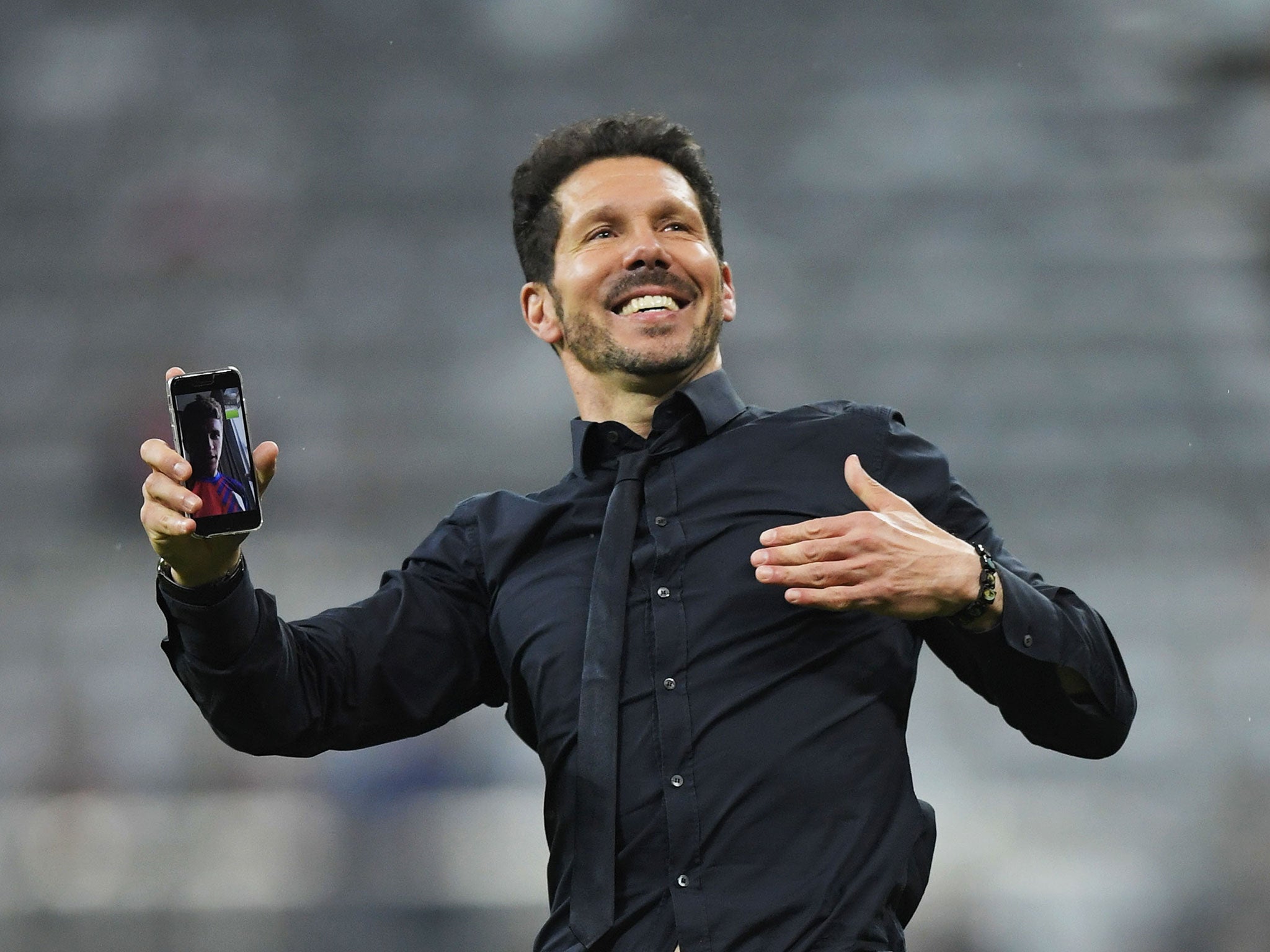
The real genius of defending this deep, though, is that it makes the side dominating possession more vulnerable to the break. Facing a side camped in their own half, you can only pass sideways, not forwards. So you creep gradually up the pitch, moving further and further out of position, with so much space to attack in behind.
That is what happens with Leicester every week. When Atletico knocked Barcelona out of the Champions League, Barca centre-backs Javier Mascherano and Gerard Pique were frequently just 15 yards outside Atletico’s box. When they knocked Bayern Munich out in the semi-finals, the crucial away goal came when Antoine Griezmann was played through by Fernando Torres, and was clean through on goal a whole 30 yards out.
We always hear when Leicester or Atletico score on the break that the goal was ‘against the run of play’. But nothing could be further from the truth. These fast breaks are entirely part of the manager’s plans. They are the weapon counter-attacking teams have against possession sides.
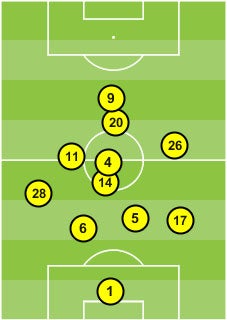
This is why possession stats have been rendered so useless as a guide to who is on top. When Leicester have less than 50 per cent possession, it is not because the game is going against them. It is going entirely to their plan. This season Leicester drew at Old Trafford with 29 per cent possession, beat Swansea and West Ham with 30 per cent, beat Norwich with 33 per cent, Manchester City with 34 per cent, Liverpool with 36 per cent and Tottenham with 38 per cent.
Atletico’s numbers are even more extreme. When they beat Bayern Munich 1-0 at home in the semi-finals it was with 26 per cent possession. When they beat Barcelona 2-0 in the quarters, just 22 per cent.
What these numbers show is that possession is no guarantee of success, or even of clean sheets. In fact, endless possession can often lull teams into a false sense of security, as they pass the ball and move up the pitch but leave themselves desperately open on the break.
That is what has happened at Everton, a perfect example of a possession team who has been caught out by the changing game. Their approach has been all about pointless passing, forgetting about other sides of the game, not least defending. Opponents set traps for them which Everton walk into every week. That is why they have just five home league wins all season – only Aston Villa have fewer – and their best performances have come away from home. It was little surprise that Roberto Martinez lost his job.
Other Premier League managers will learn the same lessons, especially those who have been overtaken by the fast, hungry counter-attackers of Leicester and Tottenham Hotspur. I am thinking about Arsenal and Manchester United, currently third and fifth in the table, neither manager able to get the most out of their strong squads.
United certainly have fast players in Anthony Martial, Marcus Rashford and Jesse Lingard but they do not use that pace on the pitch. The problem is that when United win the ball back, they don’t get up the pitch in three passes – like Atletico or Leicester – but six or seven, by which time the opposition have got back into shape.
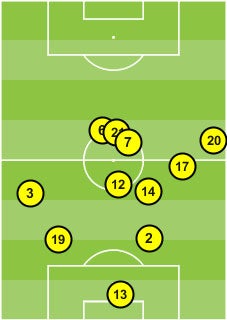
If Van Gaal is to survive at United he must show that he can evolve with the times, even though he would be 65 years old by the start of next season. Ranieri, though, is just two months younger than Van Gaal, and he showed this season how adaptable he is.
The same questions are relevant to Arsene Wenger, another manager whose career seemed to peak 10 or 15 years ago. His Arsenal sides have not seriously challenged for the Premier League title since then, and if he is not open to a different approach it is hard to see how that will change.
Manchester City, of course, have already found their new coach for next season, Pep Guardiola. He built the great Barcelona team which set the new trend for possession football eight years ago. And yet even he knows that there is far more to the game than just keeping the ball.
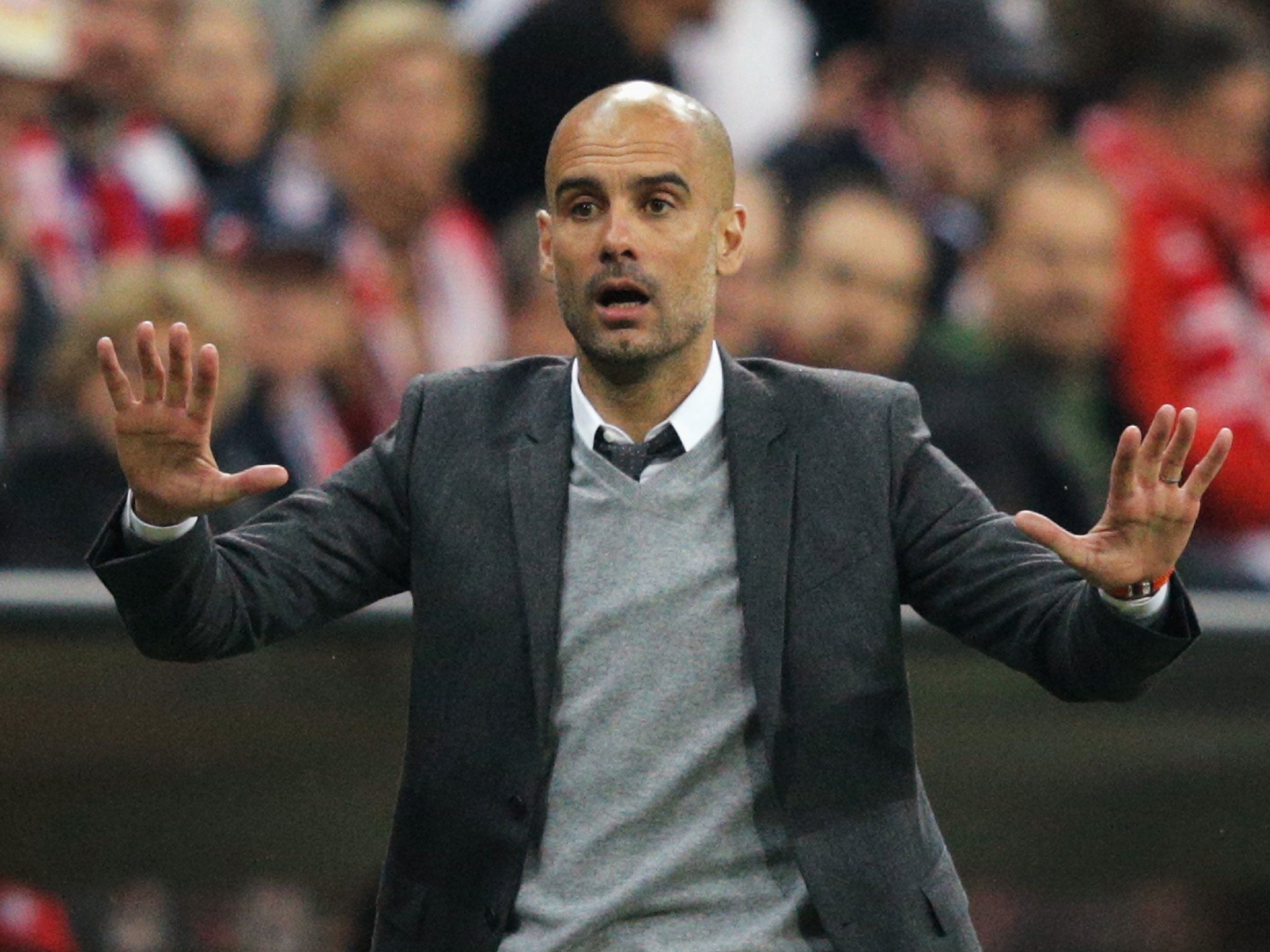
“I loathe all that passing for the sake of it, all that tiki-taka,” Guardiola said in his first year at Bayern Munich. “It is so much rubbish and has no purpose. You have to pass the ball with the clear intention of making it to the opposition’s goal.”
Guardiola was right. This is the era of the counter-attackers now. And everyone else risks getting left behind in their wake.
Join our commenting forum
Join thought-provoking conversations, follow other Independent readers and see their replies
Comments